Explaining how Batman works written is a huge task. There is simply so much Batman. Since the character's creation in 1939 every conceivable tone has been struck with these stories. And if every twist or variation hasn't been tried, well, almost all of them had. You can read a Batman story in an alternate D.C. Universe where Bruce Wayne marries Selena Kyle and has a kid. That's not fanfic, that's a D.C. imprint from the 80's I think.
This field has been PLOWED, in comics, film, television, action figures, t-shirts -- Batman. It would take a lifetime to do a comprehensive survey. And I think it would be a life -- well, wasted. Because the fact is most of everything isn't very good. Most Batman comics or movies, while they are fun and they are fine, they certainly aren't sublime.
The reason I’m doing this is that I’m currently writing a "Batman" story, of a kind. And to do that well, I want to understand the character better. I’m writing a series called How to Succeed in Evil, available on Amazon, about an Evil Efficiency Consultant for Supervillains. It uses superhero tropes in the same way Douglas Adams uses Science Fiction and Terry Pratchett uses Fantasy. In the latest series of books, the long-term antagonist for my consultant is a superhero called The Lynx.
This current run of the story started as I tried to answer the question, what would I do with Batman? What's the Batman story that hasn't been told. What happens if Batman was real like really, real? What's a consequence of this that nobody has ever considered.
How to Succeed in Evil works like this. You put a superhero trope next to real people and it's funny or creates instant satire.
Like Bruce Wayne. He's got billions. So if he really wants to help people, he should do it at scale, not by pounding muggers in an alley. He should devote his time to the Wayne Foundation. And if he really believes in what he's doing, he'll want to turn Wayne Enterprises into an engine that will generate so much money that he can use it to fund the foundation.
So, in my idea, Batman is inherently irresponsible. He's a trust fund kid, who's defrauding his shareholders so he can play vigilante. He's a dilettante. And, from that you can know, he's probably not very good at business OR fighting crime. He wants to do the right thing, he just doesn't know how. And that's funny. And/or sad, depending on how you play it.
So, for me, the questions to ask are three-fold.
1. Why has Batman lasted? What makes this character have such staying power? Is it luck? Created at the right time? Certainly some of that is true, but there are things about this story and character that would be useful to understand if you want to make new stories that you hope will last. (and I do)
2. How does this engine of story work? I mean there are so many Batman stories. So many great characters. What is it about this particular wellspring that makes it so productive. And, is there anything I can steal to become more productive myself.
3. What is a Batman story at it's absolute best? How/and why does it work?
So here's my plan of attack, I'm going to place Batman in the pulp tradition. I'm going to talk about the major kinds of Batman stories. And why, when they are great they are great. And then I'm going to analyze about the film the Dark Knight and the comics that lead up to it.
Do you want Batmen? Because that's how you get Batmen!
So where does Batman come from? One of the most important insights I have for anyone about story or even art in general is that everything was influenced by something. "There is no new thing under the sun," as the saying goes, which logically can't be correct. But new ideas are very, very, very, very rare. So if you see something that you think is without precedent, turns out there's a part you missed.
And the part you might miss about Batman is that he is straight-up a pulp character. The pulp era in which he was created was this vast roiling machine that turned out story after story after story, almost all of them repackaged and produced with a speed that modern writers can't seem to match. Even though they had mechanical typewriters and we have computers. And these Pulp Characters are the guys who people like Bob Kane and Bill Finger used as inspiration.
The number one inspiration for Batman is Zorro. Bob Kane said so himself. In the classic origin story, young Bruce Wayne and his parents are coming out a screening of The Mask of Zorro, when his parents are killed in a mugging.
For me, Batman also has elements of The Shadow, Lamont Cranston, rich playboy by day, turns into the Shadow, who turns invisible and scares the crap out of criminals while solving mysteries and righting wrongs.
There are of course others, it's all a melange. But from the word go, Batman comes right out of this world of ridiculous characters. Well, ridiculous now, if you go back to read them. But the other interesting thing to note is, Zorro's greatest influence is Robin Hood. I mean Zorro basically is Robin Hood. Which makes it interesting to think about Batman as an echo of Robin Hood.
The interesting thing to note is that Batman is not ridiculous. Not at the start. Not funny, either. From the word go, Batman is a tragedy. And the Joker is a horrific monster.
That panel of recently orphaned Bruce Wayne crying and dedicating his life to fighting crime in the earliest origin story is harrowing. Sure, I didn't get this the first time I read it, but when you go back and look at it, it's all there.
And this is the primary difference. Batman has internal stakes. All of these other pulp adventurers, they're doing something because it's fun. Gentlemen Adventurers. Or because it's right abstract sense. Bruce Wayne dons cape and cowl not only for justice but to fix what is broken inside him. Batman is, first and foremost, a response to trauma.
So how do Batman stories work?
Batman never changes. Oh I know, Robin got killed and then he wasn't and Robin changed out and Nightwing, blah, blah, blah. But in terms of real interior character change, it seems to me that only two Batman stories involve the character changing in a significant way. The origin story and the death story.
Everything else, is about the villains, in a deeply fascinating way.
For me, in every good Batman story, the villain is a manifestation of Batman's internal struggle. And maybe every good action story is like this.
Maybe a hero's struggle is always his or her consciousness against inner forces, those elements of psychology and neurology and instinct that we aren't consciously aware of, that we must overcome to become what we want, or need to be.
Take, for example, an alcoholic. In one sense, there is nothing easier than not being an alcoholic. It's literally the cessation of an activity. It would seem to require no effort. But we are not in charge of ourselves. And the struggles to overcome addiction -- or anything else -- are titanic. But they are internal. And it is very difficult to understand anything in abstract terms -- especially the deep interior life of a human being. We make them concrete in character and action.
So to understand and reason about these psychological struggles, the ancestors developed myths. I believe they used the oldest and most eternal categories known to them (Mother, Night, Father, Ocean, Light, Darkness, Dragon, Fire, Ice) not as things as themselves, but to try to understand what was going on inside them and how people should act in the world.
In a real sense, the battle against any monster is smaller and secondary to the battle against the instinct for self-preservation within. But since we can't symbolize the inner battle very well, in stories, heroes slay dragons.
Batman doesn't have Dragons, Batman has characters that are his externalized personality traits or other competing possible responses to trauma.
So, many versions of the Joker is are a valid and understandable response to tragedy. We live in a cruel, nihilistic world. Nothing matters. There is no God, it's all a joke.
Bruce Wayne/Batman is the opposite response. Bruce, through grief and the power of his will forges himself into an instrument in an attempt to restore justice and make the world a better place.
And every Batman character is like this. Oh, they might have started out kind of silly, but as writers and artists plumbed the depths of these characters and tried to make better and better work, it all converges on the same idea.
Batman strikes terror into the hearts of evil-doers and uses fear as a tool. Who else uses fear as a tool? The Scarecrow.
Batman has become part monster. You know who's also part monster? Killer Croc. and ManBat. Because where's the line? What happens when the monster takes over? When do you go too far?
Batman wants Justice. You know who else wants Justice? Ra's a Ghul. When does a vigilante go to far?
Batman, you think you had it hard? You think you're strong and scary and know what loss and pain is? Think you can stay forever young and be the most super of superpredators? Meet Bane in the Dark Knight Rises.
Now I'm not going to argue that all Batman characters do this perfectly or that every Batman story works this way. But the ones that work the best certainly do. A philosophical or psychological question is personified in a villain.
Even the Penguin, as nutty as that character might seem, is a fundamental response to trauma. He's an orphan, his mother killed by a cruel disease. So he turns to crime. Because why not? The world is cruel and meaningless. A contrast to Batman turning to justice because the world is cruel and meaningless.
And I think the original weirdness of comic book characters is that a fundamental source of ideas in comic book stories is what is cool to draw. And then the story is worked out.
In fact, that's how I came up with the characters of Edwin Windsor and then Topper Haggleblat. It started with a marketing/merchandising idea to begin with. How do you make a comic stick out on the comic book racks? What if there was a comic book that was narrower and taller than other comics? Okay, why would that be a good idea? The hero is very tall, elegant, sophisticated. And I drew this terrible pencil sketch. And if you have a tall guy, you've got to have a short guy.
And while pulling on that thread, the story of How to Succeed in Evil unraveled for me.
A Batman story at its absolute best?
For me, the apotheosis of Batman is found in two graphic novels, both by Frank Miller. Batman: Year One and Batman the Dark Knight Returns. If you don't know the first is an origin story. And the second is an ending story.
It's no exaggeration to say that these books, along with Watchmen, The Killing Joke, and V is for Vendetta (all by Alan Moore) saved the dying medium of comics in the West. Time magazine picked Watchmen as one of the best novels of the 20th century. I don't think that's exactly right, but I agree with the point I think they were trying to make. All of these works are of stupendous quality. And not to read them is to be provincial in your own culture. All of these books are, in a sense that the word is not often used, canon. Even if they weren't great in themselves, they would necessary to interact with because of the effect they have had (for better or worse) upon the larger culture. If you want to write anything other than literary fiction, you should read them.
All that being said, I have come to a strange conclusion, with one exception, Batman stories at their absolute best are stories about somebody else. Probably the Joker. Or maybe the way to say that is, the best stories with Batman in them are about the Joker.
And you can even make a good case that Batman Year One, would be more accurately titled 'Lieutenant Gordon: Year One.' The weight of the story, the biggest change is Gordon.
And this is a point that's kind of hard to see, because of the way they name movies and plaster Batman all over everything.
For example, Christopher Nolan's wonderful film, The Dark Knight. Who's the prime actor in the movie? The Joker. And he's trying to prove that ultimately everybody is awful and nothing means anything.
Did I ever tell you about how I got these scars? The answer is different every time because the truth doesn't matter. He's trying to destroy Batman. Bring him to the belief that there is no Justice. To get him to realize that you can't be a decent man in a decent time.
That's why Harvey's Dent makes sense in the story. To provide a contrast. Here's someone like Bruce Wayne, better than Bruce Wayne, and he is powerless against the Joker's basic argument. The criminals are powerless against the Joker.
And the crazy thing about that movie and its ending is that the Joker wins. Nothing means anything. The lies win. "Because sometimes the truth isn't good enough. Sometimes people deserve more. Sometimes people deserve to have their faith rewarded."
Just take that out of context for a sec. But those words in a news director's mouth. Put those words into the mouth of a wife or husband who has cheated. Honey I'm going to reward your faith in me by lying.
That's some evil shit right there. And if the music and the cool art direction made those words sound good to you, made them sound unquestionably heroic, I get it -- I'm right there with you. But that's not flattering for either of us.
And the only reason you didn't realize this and hate it immediately, is because of this scene --
There are many, many great things about The Dark Knight as a movie. The pacing and the scenes are so tight, the dialogue is brilliant. Just think about how many great lines you know from that movie?
"Some men just want to see the world burn?"
"You want to see a magic trick?"
"We're going to have tryouts?"
"Did I ever tell you how I got these scars?"
"Gotham needs a better class of criminal?"
"Do I look like a guy with a plan?"
Of course, Heath Ledger's performance is magnificent. This movie and Batman Begins are so good we even overlook the absurdity of the whole Batman word-gargling thing. It's sooooooo stupid. But it works.
I think Dark Knight comes as close to being a great movie as a superhero film can without actually being a great movie. For some reason, it just doesn't hang together for me. It's three magnificent set pieces. The bank robbery at the beginning. The sequence where the truck flips and the choice on the two ferries. And the rest of it is woven together well but doesn't feel like a unified whole to me.
But the level of craft. And how funny it is for being so intense in places. So many great, great moments. And really those moments, those singular experiences on the emotional rollercoaster of a good story are why we go to see big Hollywood movies. But they're not why a story lingers with us, stays in our hearts or changes us.
And Dark Knight doesn't do that.
But, the story that inspired it does.
I'm talking about the 1986 graphic novel, The Dark Knight Returns. I'm not going to explain why this thing IS great in detail. It's a lot of things, but it's the story of an old hero who dies. Which is a part of the hero's journey that we've forgotten in modern times. But it a big part of it. See, if you're going to be a hero, you don't get to lay that burden down. In Beowulf, as an old man Beowulf, has to answer the call again and die fighting a Dragon.
Hell, King Arthur dies killing Mordred, but he doesn't even get to stay dead. As the legend goes, he's sleeping, waiting for the time he is needed again.
We see this story play when an old boxer comes out of retirement to fight a young one. He's too old, but he's the champ.
You can hear it in these lines of Tennyson:
Death closes all: but something ere the end,
Some work of noble note, may yet be done,
Not unbecoming men who strove with gods…
…Though much is taken, much abides; and though
We are not now that strength which in old days
Moved earth and heaven, that which we are, we are,
One equal temper of heroic hearts,
Made weak by time and fate, but strong in will
To strive, to seek, to find, and not to yield.
The Dark Knight Returns hews to that form. And maybe The Dark Knight the film doesn't work because it's not really cast in one of those great forms of story? That's the kind of question that I don't know how to answer just yet. And if I had waited until I had figured this out, I never would have finished this video.
I'll tell you my hunch though, if you want to innovate with story form, odds are it's probably not going to work out. It's like a song or symphony, you have to make a great one within the form.
What I can tell you about the Dark Knight Returns graphic novel is that it has been looted by every creator since.
The Dark Knight Returns contains the movies, The Dark Knight, The Dark Knight Rises, Batman vs. Superman, and the first page alone was the inspiration for that 20-minute race track scene in Iron Man 2.
Frank Miller forever changed Batman. Every Batman after Miller is the dark, scary, gritty, possessed, gravelly-voiced Batman. And, as if that's not enough, he also did the same thing with Daredevil. Every Daredevil after Frank Miller is, in a sense, Miller's Daredevil.
On top of all that, The Dark Knight Returns was the first comic I know of to genuinely gender swap a character -- Robin is a young girl. And she is hands down, no questions asked, my most favorite and I think also the most heroic Robin there is. And I have never really liked Robin. Robin has always struck me as kinda stupid. The boy hostage. But Carrie Kelley? She's a brilliant character.
So for my money, if you want Batman at his best, it's Batman the Dark Knight Returns.
In closing, I should also say, that revisiting Batman after all this time, gave me strange new insights. One is, and there's no way around this, is that Batman is himself a criminal -- he's a vigilante. A man who takes the law into his own hands. All superheroes are, in a sense. But explicitly Batman. And the crazy thing is how long the character ran on -- all of comics really -- with a nod and a wink. Yeah, yeah, it's okay 'cause he's a good vigilante. Or it's fine because he's rich and he's trying to do the right thing.
It's really thin, but everybody was and, is okay with it.
“What gives you the right? I'm not the one wearing hockey pads!”
And the reason that we're okay with justifications like that we know it's going to give us a great story. Or perhaps that we understand, on some barely conscious level, that the logic of the story works as competing villains, competing perspectives on responses to trauma. And I'm sorry if this seems vague, I'm at the limit of my understanding here, but what I take away from it is two-fold.
1) Realism, in any sense is a bad quality to judge story. I mean if you look at any story that people love, it's utterly implausible. Even, and perhaps especially, the non-fiction stories. The longer the odds, the more unlikely the outcome, the more we like it.
2) We don't need much of an explanation, we don't even need a good explanation to suspend disbelief, but we need an explanation. Maybe all a reader or viewer needs is an acknowledgment that some stretch of genre or realism is being a handwaved away and we're good.
Conclusion
So to wrap it all up.
1. Why has Batman lasted?
Some of it was certainly lucky timing. But the part that wasn't is because Batman has internal stakes built-in. Tragedy drives the character, even when he's ridiculous.
2. How does a Batman story work.
Every character is a response to trauma. An aspect of Batman's psyche that has been externalized. Now there's more to it than that, but I think that's what drives Batman's rogue's gallery and why the stories keep coming.
3. What is a Batman story at its absolute best?
Frank Miller's the Dark Knight Returns.
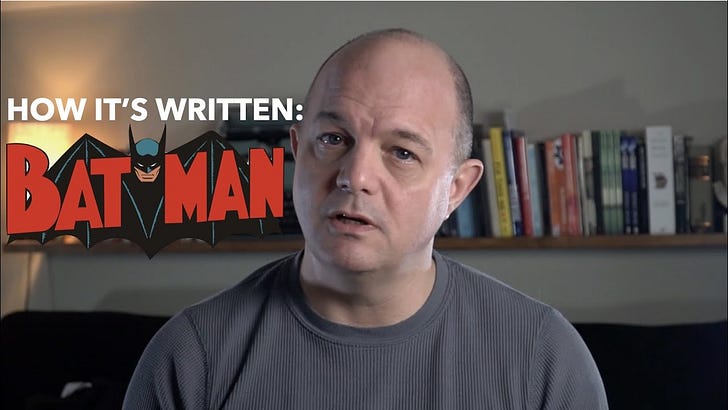

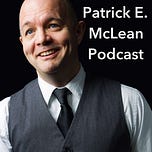



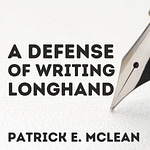


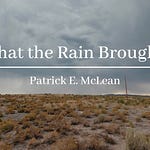
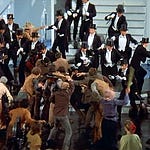


Share this post